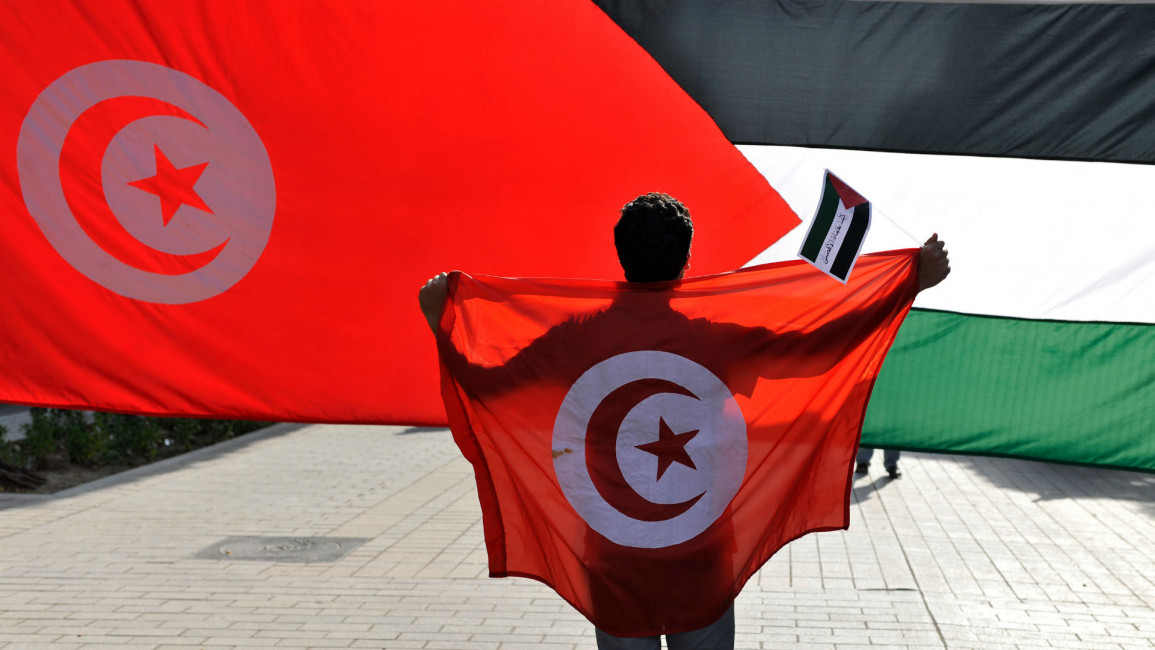Tunisian court rules against normalisation with Israel
A Tunisian court has set a historic precedent that effectively criminalises any normalisation of relations with Israel.
Sousse appeals court, in northern Tunisia, ruled that two planned tourist trips to occupied Jerusalem by a Tunisian tour operator should be cancelled.
This follows an article in the 2014 constitution that reiterates Tunisia's support of the Palestinian cause, and opposition to Israel's colonisation of land.
An anti-Zionist Tunisian organisation, better known as Qawim, filed a lawsuit at the end of last month against the travel agency it accused of attempting to "normalise relations" with Israel, by arranging trips to occupied Jerusalem.
Qawim said this organisers of the trip would have to coordinate with Tel Aviv, and these actions would go against the Tunisian constitution.
"Normalising relations with the Zionist entity in an official fashion can take on various forms including tourism, in particular religious and cultural tourism, or normalisation through direct and indirect commercial exchange," the lawsuit stated.
Qawim said that the two trips were clearly exploiting religious sentiments to attract travellers by arranging visits to Islamic and Christian religious sites in Jerusalem.
| Qawim said that the two trips were clearly exploiting religious sentiments to attract travellersto Jerusalem. |
The groups alleged that these actions were "defeatist and negligent to the common historical rights between the Arab nation, Palestine and other occupied lands".
Nadia al-Warghi, Qawim's lawyer, said that this is the first time in the Tunisia’s history that courts have made a legal ruling on the Tunisian constitution related to normalisation of relations with Israel.
The court stated that the advertisement for the trip did not include information about whether the accommodation, transport, tour guides, and agency that would be responsible for organising visas and permits would be Israeli or Palestinian.
Warghi said that this fact spurred her to complain to Tunisian security services.
She was also concerned that the trip coincided with the Israeli elections and Land Day, although she did not doubt the good intentions of the trip's organisers.
"It is important we overcome the sense of inability and the sense of satisfaction with just crying for children while they are killed in Palestine. There must a move towards concrete actions. I think Israel and Mossad followed the case but the court was decisive in its ruling," Warghi said.
She believes that this ruling will be starting point for others cases related to Israel, and will help to give more power to groups working for Palestinian rights.
This article is an edited translation from our Arabic edition.



